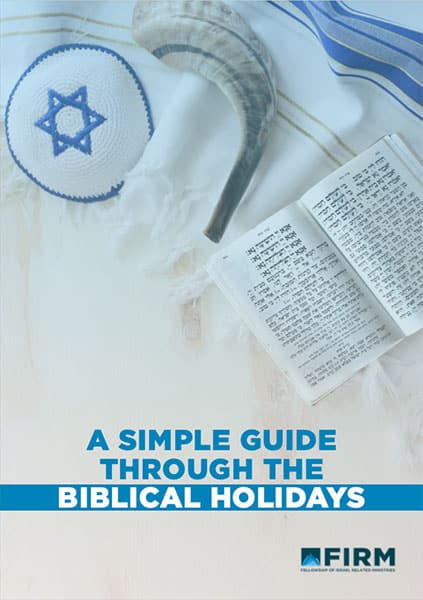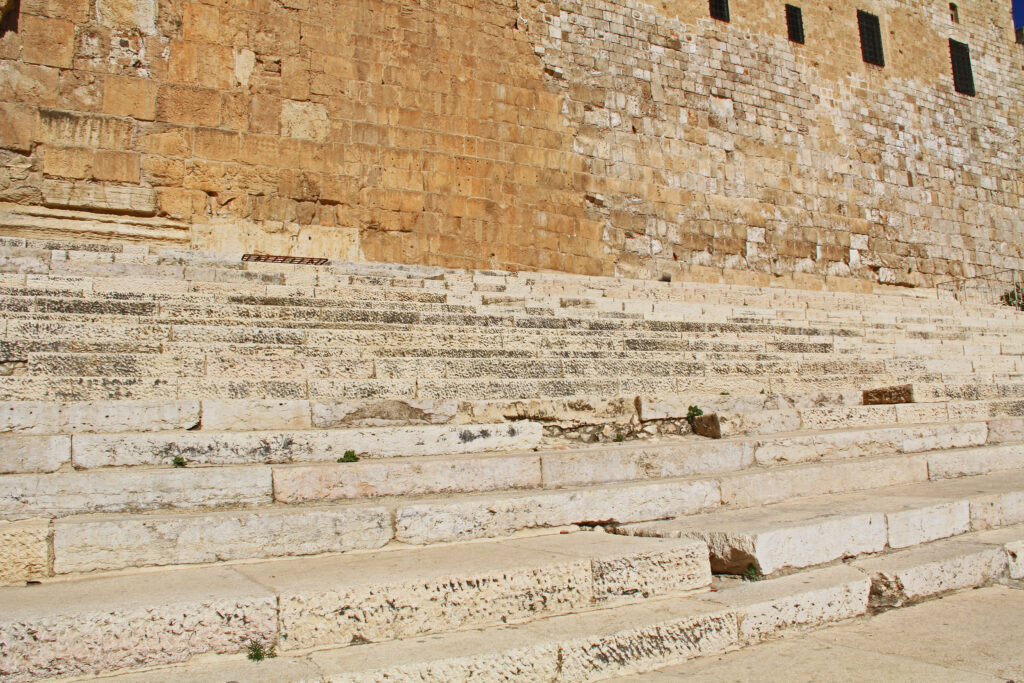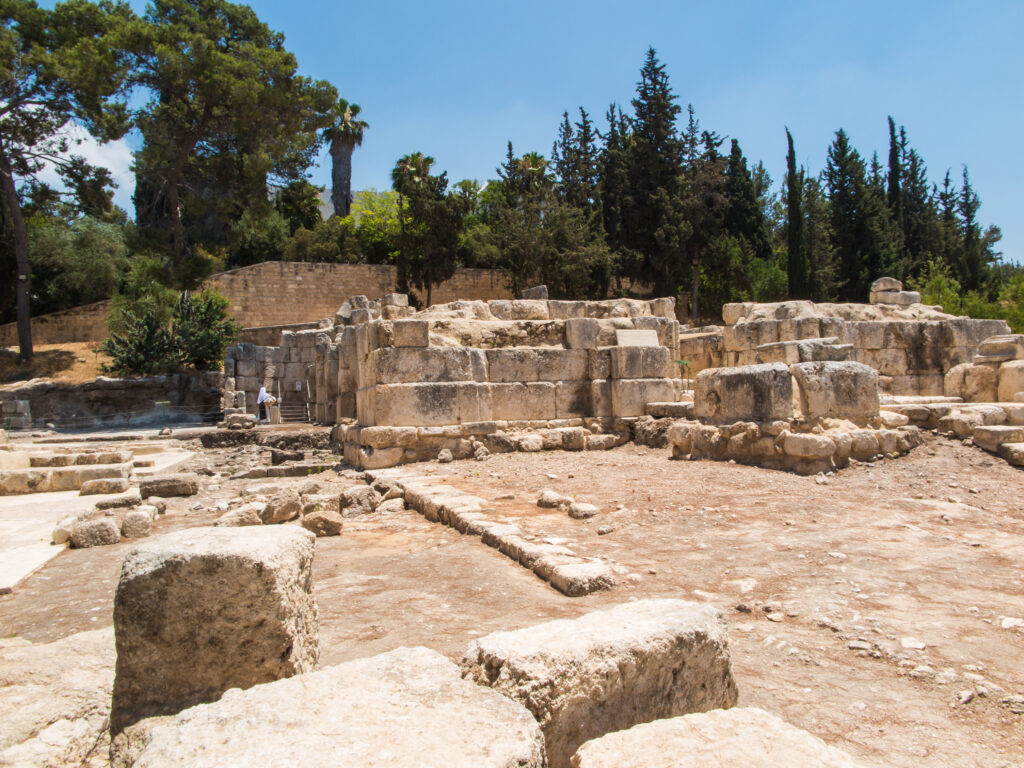What is Shavuot and why is it celebrated?
Shavuot is one of the three pilgrimage festivals described in the Bible, along with Passover (Pesach) and Sukkot. It is one of the eight appointed times of the Lord described in Leviticus 23.
The Feast of Shavuot typically falls in late May or early June on the Gregorian calendar. The holiday has both historical and agricultural significance, focusing on the first fruits of the harvest. Yet, above all, the significance here is spiritual.
What is Shavuot in Judaism?
Shavuot commemorates the giving of the Torah, the Jewish law, at Mount Sinai. There, God revealed Himself to the entire nation of Israel (through Moses) and gave them the Torah. This included the Ten Commandments, which form the foundation of Jewish law and ethics.
Shavuot is also known as the Festival of Weeks, coming from the Hebrew word for weeks. In ancient times, it was an agricultural festival. It celebrated the end of the barley harvest and the beginning of the wheat harvest. Plus it included bringing of the first fruits to the temple in Jerusalem as offerings to God.
One of Three Pilgrimage Holidays
Shavuot is not as well-known as the two other temple pilgrimage holy days, Sukkot and Passover. However, it is still significant. It commemorates the culmination of the Counting of the Omer (barley offering). This begins immediately on the second night of Passover for 49 days, until the day of Shavuot.
Sukkot has memorable sukkahs, tabernacles and daily prayer with the lulav and etrog (plant species that are used ceremonially). Passover has a seder dinner with special food and a dramatic retelling of the Exodus account. Shavuot doesn’t have quite a distinguishable ritual observance. It is more subtle among the pilgrimage holy days described in the Torah. Yet, it is still a significant holy day.
Shavuot in the Bible
Another name for Shavuot is “Yom HaBikkurim” or “Day of First Fruits.” It commemorates the first day of the summer wheat harvest and summer seasonal fruit and foliage. Descriptions of this holy day appear in Exodus, Leviticus, Numbers and Deuteronomy. (Exodus 23:16-17, Exodus 34:22, Leviticus 23:15-16, Numbers 28:26, Deuteronomy 16:10)
How to Celebrate Shavuot in the Bible
Leviticus 23:15-18 has one of the more descriptive accounts of the holy day:
‘You shall also count for yourselves from the day after the sabbath, from the day when you brought in the sheaf of the wave offering; there shall be seven complete sabbaths. 16 You shall count fifty days to the day after the seventh sabbath; then you shall present a new grain offering to the LORD. 17 You shall bring in from your dwelling places two loaves of bread for a wave offering, made of two-tenths of an ephah; they shall be of a fine flour, baked with leaven as first fruits to the LORD. 18 Along with the bread you shall present seven one year old male lambs without defect, and a bull of the herd and two rams; they are to be a burnt offering to the LORD, with their grain offering and their drink offerings, an offering by fire of a soothing aroma to the LORD.
19 You shall also offer one male goat for a sin offering and two male lambs one year old for a sacrifice of peace offerings. 20 The priest shall then wave them with the bread of the first fruits for a wave offering with two lambs before the LORD; they are to be holy to the LORD for the priest. 21 On this same day you shall make a proclamation as well; you are to have a holy convocation. You shall do no laborious work. It is to be a perpetual statute in all your dwelling places throughout your generations. (NASB)
How is Shavuot celebrated?
Today, Shavuot is observed with various customs and traditions, like for example, reading through the Book of Ruth. The Book of Ruth is read during Shavuot because it is set during the harvest season and contains themes of loyalty, kindness, and the acceptance of the Torah.
Many religious Jews in Israel today decide to spend the eve of Shavuot on an all-night Torah study. It is a custom known as Tikkun Leil Shavuot. This tradition is rooted in the idea of preparing to receive the Torah anew.
A Delicious Dairy Tradition
This is also the time to eat dairy foods! On Shavuot, cheesecake and cheese-filled pastries are available on every corner in Jerusalem and beyond.
There are various explanations for this tradition, but no one can say for sure how or when it started. One idea is that the Torah is compared to milk and honey, symbolizing its sweetness and nourishment.
A Decorating Tradition
Another custom is to decorate your home or place of worship with greenery and foliage, as a Midrashic tale says that Sinai bloomed with vegetation when the Torah was received on the mountain.
Shavuot and the Book of Ruth
As mentioned earlier, the book of Ruth is customarily read during Shavuot, as the events take place in the beginning of the barley harvest (Ruth 1:21), before Shavuot. Many of us are familiar with Ruth’s story, as it has become a biblical love story and one that recalls the provision of the Lord after hardship, labor and waiting, with wealth, fortune, love and family. Who doesn’t love a happy ending?
The Story of Ruth
However, think about the beginning of Ruth and Naomi’s story, before Boaz. The beginning sentences tell us that there was a famine that was so dire that Naomi’s husband, Elimelech left his native land to go to Moab to seek better fortune there.
Moab was enemy territory, but these were desperate times, and the saying goes, desperate times, call for desperate measures. Elimelech and Naomi had two sons, named Mahlon and Chillion, which in the Hebrew language, roughly translates to “Poor” and “Sickly” and true to their namesakes, “Poor” and “Sickly” died and left their wives widows.
As we know, Naomi returns to Judah with Ruth, who refuses to leave her side. Their return was widely talked about: could this be Naomi who left with her husband to seek better luck in enemy territory?
Difficulty for Naomi and Ruth
If you have ever had to return to your hometown because of circumstances not of your choosing, maybe you could relate to Ruth and Naomi. The raised eyebrows, the probing questions and little comments. In the beginning of the story, all Naomi and Ruth have is one another, their faith in the Lord, and their will to survive. Naomi answers her neighbors,
“She said to them, “Do not call me Naomi; call me Mara, for the Almighty has dealt very bitterly with me. I went out full, but the LORD has brought me back empty. Why do you call me Naomi, since the LORD has witnessed against me and the Almighty has afflicted me?”
This was not how Naomi or Ruth could have ever imagined their lives going, as far as they could tell, it was game over.
Difficulty on the Road to Emmaus
In the story of the Road to Emmaus, we see Cleopas have a similar feeling: how could the Messiah, or the one we had thought to be the Messiah, die? This wasn’t the plan. The plan was for the Messiah Jesus to conquer the Romans and re-establish the Davidic throne.
Little did Cleopas know that he was talking to Jesus in the flesh, but Jesus still did not reveal his identity just yet, but spoke to him plainly recalling the scriptures and the words of the prophets.
After the revelation and parting blessings, Jesus ascended into heaven. Luke’s gospel says that “After worshiping Him, they returned to Jerusalem with great joy. And they were continually in the temple, praising God.”
“And He led them out as far as Bethany, and He lifted up His hands and blessed them. 51 While He was blessing them, He parted from them and was carried up into heaven. 52 And they, after worshiping Him, returned to Jerusalem with great joy, 53 and were continually in the temple praising God.”
Shavuot and Pentecost
The events of Acts 1 and 2 take place from here, as Shavuot required Jewish men to make pilgrimage to the Temple to worship and give offerings. You may recognize Shavuot from its Greek name – Pentecost.
What does Pentecost mean?
Pentecost comes from the Greek word for 50, because it is the culmination of the 50 days of Counting the Omer. The counting begins immediately after Passover and the Feast of Unleavened Bread.
Jesus, who gave Himself as our Passover lamb, ascended 40 days after his crucifixion. In anticipation of Shavuot, Jerusalem was full of pilgrims and the disciples were already gathered. (Acts 2:1)
The Spirit was poured out among those gathered, and they were all amazed because they heard one another in their native tongue. Peter, who once denied Jesus, spoke boldly to the crowd, preaching the gospel to the multitude who were gathered. The Spirit could only come when Jesus had ascended, and it was the culmination of the waiting.
How can Christians observe Shavuot?
As a Christian, you may be familiar with celebrating Pentecost. Oftentimes, there will be a special service dedicated to Acts 1 and 2, teachings on the Holy Spirit as well as an emphasis on evangelism and giving to Missions. These are all wonderful and should continue! You can even add Bible study, specifically Torah study, eating cheesecake and other dairy treats and decorating your home with foliage to commemorate the first fruits and summer harvest.
To pick up on the story of Ruth, and the Road to Emmaus, we can be encouraged that waiting on the Lord. We can have faith in God’s timing. That it will turn out for our good, even if it is painful. Especially if our circumstances are difficult and not at all what we expected to be a part of our lives. Shavuot, commemorating the summer harvest was the fulfillment of the hopeful, waiting patient expectation. Then Pentecost, taking place on Shavuot, was the first fruits of the Holy Spirit.
When Jesus spoke with Cleopas, Cleopas could not recognize the Lord. He did not realize that it was the Lord who was walking with Him all along, listening to his disappointment and confusion. Ruth and Naomi could not imagine how the Lord would make good out of their suffering and desolation. Even so, they moved forward in faith without knowing what was next.
What is the lesson of Shavuot for me today?
As we all know, most of what happens to us in life we could never plan or expect. Sometimes we have good surprises— health and wellness, a new member of the family being born, new unions, career and personal growth opportunities, financial windfalls, overall success and wellbeing, and other times…well the surprises we face leave us like Ruth and Naomi, wondering how did we ever get here, and how could this possibly be a part of the plan?
Fortunately, the Lord doesn’t require us to put on a brave face and act like we are happy with suffering and hardship. Naomi cries aloud with her voice that she is desolate and bitter, Cleopas expresses his gloom and confusion. The Psalmist cries out his suffering and affliction repeatedly in scripture. The Lord always welcomes our honest prayers and feelings, and He is always alongside us.
As you celebrate Shavuot and Pentecost, we here at FIRM hope that feel strength and encouragement. We hope to see you move forward in faith, not by sight. You can have assurance. Like Cleopas, the Lord walks alongside you. He has given you his Holy Spirit to guide and counsel you.

A Simple Guide Through the Biblical Holidays: Free PDF Download
You may know them as the “Jewish holidays,” but did you know the Bible calls them “Feasts of the LORD”?
We’ve put this guide together for you so that you have all you need to know about these holidays that God calls His own.
Articles Related to What is Shavuot? Discovering this Jewish Holiday
Estimated reading time: 12 minutes



